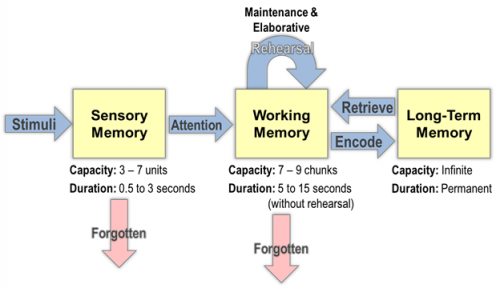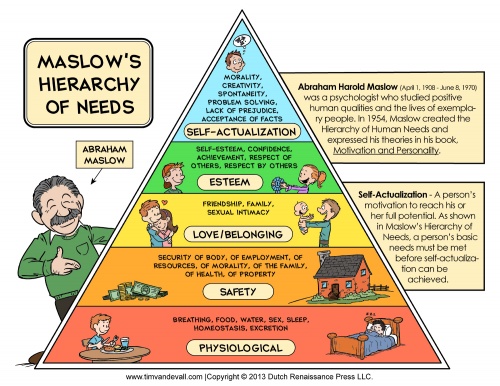Our recollections are often less detailed and less reliable than we would like. New research helps explain why memory fails us—and how we can make better use of it. Savor the Moment When taking a picture, we outsource our memory to the camera. “New technology lends itself to just collecting lots of photos,” says Fairfield University psychologist Linda Henkel, “not taking the time to look…

Why Memory Fails Us and How We Can Make Better Use Of It

Maslow’s Hierarchy of Needs
Psychology Talk: “Sleep and Dream”

4 Ways to Beat the Winter Blues
The sky is grey, the temperature is low, and the color of your mood ring turns a scary blackish blue. The winter months — especially for those huddled under a snow drift during the first two months of the year — can trigger a major depressive episode or worsen the symptoms in persons with chronic depression. So what to do? 1. Get a lightbox. Less sunlight…
Facebook Status Updates as Social Snacking
Just about everyone has an opinion about Facebook. A favorite theme is loneliness. There are those who believe that Americans (among others) are becoming lonelier and that our habits of connecting by Facebook instead of in person are hastening our slide into isolation. From that perspective, people constantly posting status updates are revealing their own loneliness. Others instead believe that Facebook allows people to stay…
5 Myths About Introverts and Extroverts
Common Myths About Extroverts and Introverts Originally coined by Carl Jung, the famous Swiss psychiatrist and contemporary of Sigmund Freud, these words have become part of everyday language and, unfortunately, have become quite lost in translation. Most people think that all extroverts are outgoing and all introverts are shy. The truth is more complicated. Myth #1: You are either an extrovert or an introvert. Reality:…
How Many Days Does it Take to Create a Habit?
Ann Graybiel of MIT’s McGovern Institute has shown through research that neurons change their firing patterns when habits are learned, and then change them again when unlearned. However, as soon as something kicks back in the habit, they are fired back up. That is why it is so easy to pick back up negative addictions like smoking and drinking, but also why if you establish good habits…
Hidden Personality Traits Revealed Through Your Favourite Ice-cream Flavour
Studies conducted by neurologist Dr. Alan Hirsch, founder of the Smell and Taste Treatment and Research Foundation, tell you how personality traits are linked to your favorite ice cream flavor. Hirsch uses various standardized psychiatric test results to make statistical correlations, explaining that the same part of the brain (the limbic lobe) is responsible for both personality traits and food preference. Interestingly, Hirsch says the taste…
Top 10 Most Depressive Professions
You think that you have the hardest job in the world and that other people love their jobs? Relax, it’s not true. The proof of this is the rating of the most depressive professions in which you will hardly find yours, which means that you’re luckier than many others. And well, if you can find there yours there’s nothing you can do about it. Either…
Why Summer Makes Us Lazy
Recent research suggests that summer really does tend to be a time of reduced productivity. Our brains do, figuratively, wilt. One of the key issues is motivation: when the weather is unpleasant, no one wants to go outside, but when the sun is shining, the air is warm, and the sky is blue, leisure calls. on rainy days, men spent, on average, thirty more minutes…
